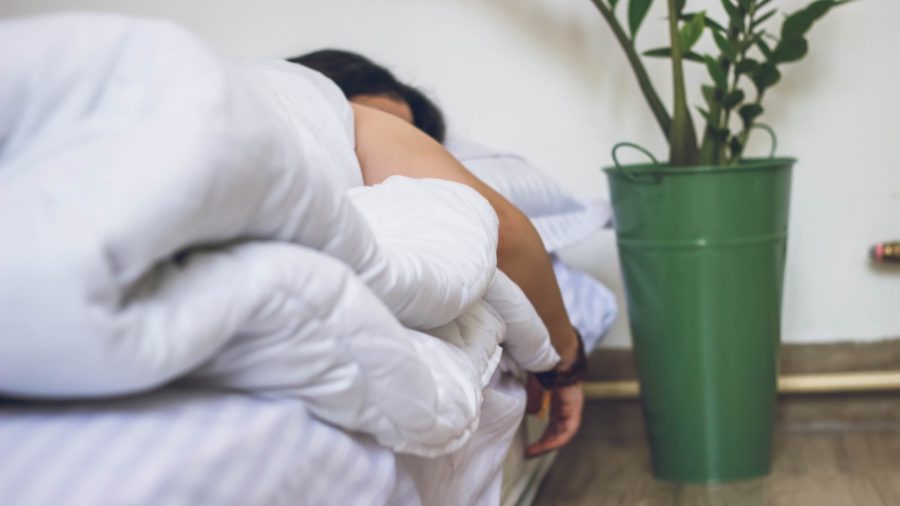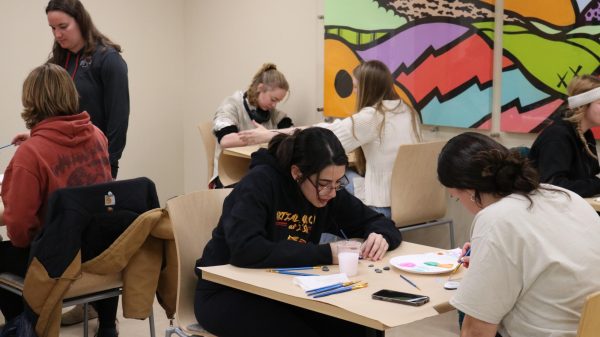ISU students can now get better sleep through campus resources
November 8, 2021
Not getting adequate sleep can be detrimental for college students’ health.
College students balance many obligations. School, work and extracurriculars often take the forefront over rest for many students. This can lead to issues regarding lack of sleep.
Carrie Giese, Health Promotions Coordinator of Student Wellness at Iowa State, explained some of the symptoms that come along with sleep deprivation.
“They vary a lot for each person,” Giese said. “I would say some of the symptoms of sleep deprivation can be grogginess, confusion, lack of mental clarity, easier to agitate, your emotional regulation decreases, so there’s all sorts of different circumstances that can occur.”
Giese went on to talk about sleep hygiene and how it can be difficult for college students.
“I think sleep hygiene, where people’s sleep patterns or how they engage with a sleeping routine can be challenging for college students,” Giese said. “I think their schedules are often irregular, where you’re sleeping can be unfamiliar, so there’s all sorts of factors. There’s additional challenges that college students face to have good sleep hygiene.”
Corrine Schwarting, a psychology graduate student at Iowa State, works for Thrive@ISU. Thrive@ISU is a campus resource through the Student Wellness Center, where Schwarting works one-on-one with students to create action plans regarding their wellbeing.
Schwarting explained that going to bed can be more beneficial than staying up to study.
“I think it’s one of the most important things honestly,” Schwarting said. “I’d say if you have the opportunity to study an hour more or sleep, sleep is actually gonna be more beneficial. I think more than anything consistency is key with sleep.”
Schwarting also discussed some of the ways college students can achieve better quality sleep.
“Putting the phone away before bed is huge,” Schwarting said. “If you’re snoozing for more than like 10 or 15 minutes, it can really eat up some time and that’s not really quality sleep either. So, if you set your alarm for six but you generally don’t get out of bed until seven, it’s actually better to sleep consistently and thoroughly until like 6:45 then snooze for 15 minutes instead of snoozing for a whole hour.”
Alison Phillips, associate professor of psychology at Iowa State, is the director of the Healthy Habits Lab here on campus. Phillips explained why it’s important for students to maintain healthy habits, such as getting proper sleep.
“Healthy behavior can help students achieve their goals by optimizing their mental health and physical functioning,” Phillips said. “You will have a better mood, be able to understand and remember information better and you will prevent illness that can derail your goals.”
Phillips also explained how finding a relaxing activity to do before bed, such as reading a book, and repeating it can help you fall asleep.
“Pick a regular time and activity that helps you relax,” Phillips said. “After repeating it, you can condition your body to relax and get sleepy when you do that behavior.”
There are multiple campus resources for students struggling with sleep issues. Student Wellness has sleep resources with tips on their website. They also run the “Sleep Well” program, which is a “four week, self guided sleep program focused on enhancing student sleep through engaging in sleep hygiene behaviors.”
Students are also able to enroll in Thrive@ISU through the Student Wellness website by taking a wellness survey where they will then be able to have a one-on-one meeting with Thrive to create an action plan.
To learn more, visit the Iowa State Student Wellness website.

















